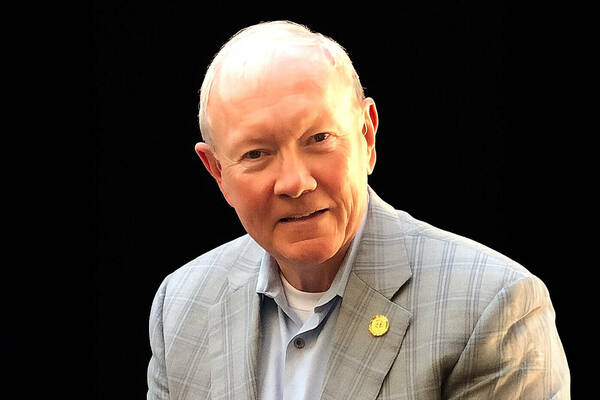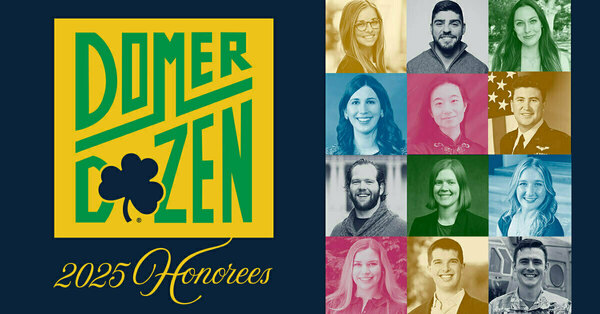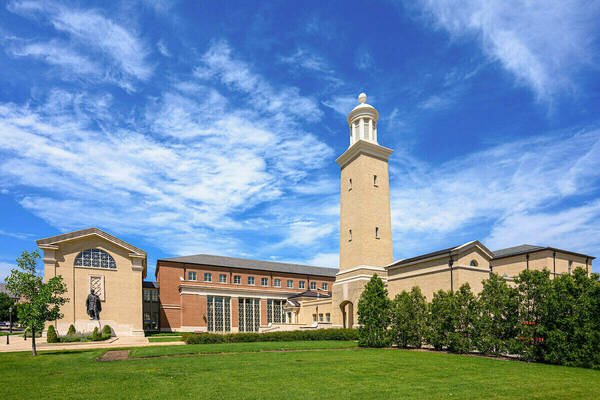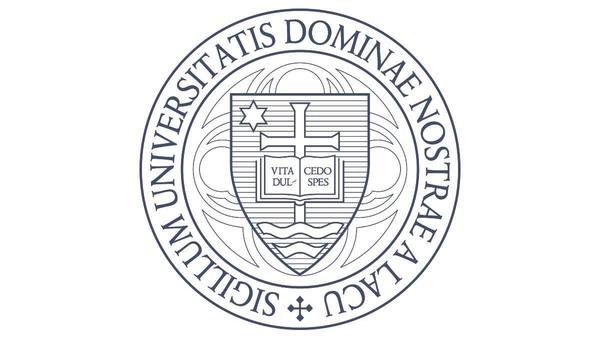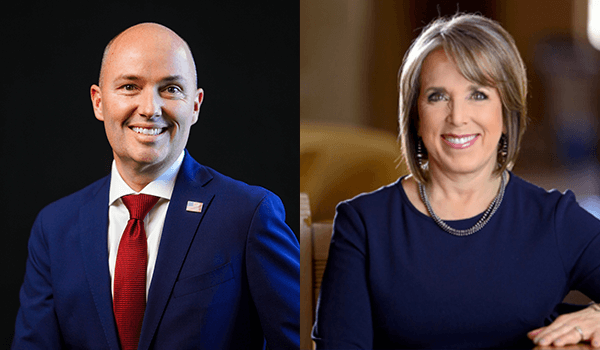Notre Dame to convene government, industry and academic leaders to set regulatory roadmap for responsible social media
Social media use has soared in recent years, with 85 percent of U.S. adults saying they use YouTube and 70 percent subscribing to Facebook, according to 2024 data from the Pew Research Center. The technology behind social media has progressed quickly with minimal guardrails or regulation to control its use or manipulation, allowing it to spread misinformation, fuel polarization, divide communities and cause distrust. At a time when democracy itself is under attack, with signs of increased democratic backsliding occurring worldwide, technology can play a role in either defending or destabilizing democracy, depending on how it is used.
To address such challenges, the University of Notre Dame is hosting the Council for Responsible Social Media and Issue One to dialogue with a cross-partisan group of leaders about the next several years of governance on social media and technology, particularly as it relates to improving democratic outcomes. The goal is to create a path forward for a social media infrastructure that supports, rather than subverts, democracy.
Led by Notre Dame’s Democracy Initiative, this National Convening on Social Media and Democracy will gather May 27-29 at Notre Dame and will bring together leaders and scholars around misinformation, technology, social media and democracy to collaborate and discuss policy changes that set a serious national agenda. Such changes can potentially redirect social media to foster healthy civic engagement, improve understanding of political issues, build trust in public institutions, bridge divided viewpoints and transform polarizing social media conversations — ultimately helping individuals find common ground and enabling democratic processes.
“Through this convening, Notre Dame brings together leading scholars and practitioners to tackle one of the most serious structural threats to democracy and our civic health,” said David Campbell, director of Notre Dame’s Democracy Initiative and the Packey J. Dee Professor of American Democracy in the Department of Political Science.

“The exchange of ideas and perspectives happening over this convening demonstrates that Notre Dame is a foundational and trusted partner for nonpartisan, evidence-based solutions to problems facing democracy,” Campbell said. “Our experts at Notre Dame are leading the way with crucial conversations about how to protect kids online, defend the information ecosystem from misinformation and put guardrails on social media to limit the harms of conspiracy theories, lies and harassment.”
Notre Dame and the Council for Responsible Social Media will work in tandem to address the negative civic impacts of social media in America, providing a co-created plan for governing social technology going forward. Following the convening, academic and practitioner contributors plan to draft a nonpartisan policy roadmap with legislative and regulatory agendas.
“Partnering with Issue One and the council is an important way that we will bridge from research to real world impact,” Campbell added.
Dick Gephardt, former House Majority Leader and co-chair of Issue One’s Council for Responsible Social Media, stated that social media has changed the world as we know it by redefining how we gather information and communicate. “And, in recent years, it has become increasingly clear that social media companies have deliberately prioritized their profits above being good stewards of society,” Gephardt said.
“Even though these companies are some of the most powerful in human history and their influence over our government is growing by the day, we must hold them accountable for the harms they’re causing to our democracy, national security and young people,” Gephardt said. “That’s why we must reign them in with commonsense guardrails that would create a healthier society and a more robust democracy.”
Faculty experts from Notre Dame’s Lucy Family Institute for Data and Society, the Notre Dame-IBM Technology Ethics Lab, the Rooney Center for the Study of American Democracy and the Kellogg Institute for International Studies, part of the Keough School of Global Affairs, will create an interdisciplinary and University-wide foundation for supporting this convening and sustaining the work beyond it.
“By convening the Council for Responsible Social Media at Notre Dame, we’re hoping to recommit to being more than just a think tank, but rather an action tank that delivers meaningful results by uniting the millions of Democrats, Republicans and independents across the country who are concerned about the effects of social media and pushing members of Congress to do their jobs,” Gephardt said.
Issue One is a leading cross-partisan political reform group in Washington, uniting Republicans, Democrats and independents in the movement to fix a broken political system and build an inclusive democracy that works for everyone. The Council for Responsible Social Media is a project of Issue One that comprises more than 50 government, industry and academic leaders to address the negative mental, civic and public health impacts of social media in America.
The National Convening on Social Media and Democracy is an invitation-only event. Learn more about Notre Dame faculty experts and their research on social media and democracy here.
Contact: Tracy DeStazio, Associate Director of Media Relations, tdestazi@nd.edu; 269-769-8804
Latest ND News Wire
- Gen. Martin Dempsey to speak at Notre Dame Forum event on ‘Hope, Global Stability and the Role of the United States’Gen. Martin Dempsey, the retired 18th chairman of the Joint Chiefs of Staff, will join University President Rev. Robert A. Dowd, C.S.C., for a fireside chat at 4 p.m. Friday (Oct. 10), as part of the 2025-26 Notre Dame Forum. The discussion, titled “Hope, Global Stability and the Role of the United States,” is part of the exploration of this year’s Notre Dame Forum theme, “Cultivating Hope.” It will take place in Rooms 215/216 of McKenna Hall and will also be livestreamed. The event is free and open to the public.
- University of Notre Dame joins the Global Coalition of Ukrainian StudiesThe University of Notre Dame has joined the Global Coalition of Ukrainian Studies after signing a memorandum of cooperation, formalized Sept. 24, at the Ukrainian Institute of America in New York City. Notre Dame joined four other American institutions that were also publicly welcomed to the coalition at this event: Arizona State University, Columbia University, Manor College and the Shevchenko Scientific Society.
- Alumni Association and YoungND honor 2025 Domer DozenThe Notre Dame Alumni Association announced its 2025 Domer Dozen cohort, honoring 12 graduates ages 32 and younger for excellence in their contributions in learning, service, faith and work — the core pillars of the association’s mission.
- Notre Dame School of Architecture poised for global leadership through historic investmentThe $150 million gift represents an unprecedented commitment in the 160-year history of American architectural education. In recognition of this landmark gift, the school will be renamed the Matthew and Joyce Walsh School of Architecture at Notre Dame.
- Board of Trustees announces external investigation into allegations of past sexual misconduct by former rectorThe University of Notre Dame today announced that the University’s Board of Trustees has convened a special committee at the request of President Rev. Robert Dowd, C.S.C., and John Veihmeyer, chair of the Board of Trustees, to oversee an external investigation into allegations that Rev. Thomas King, C.S.C., engaged in sexual misconduct while rector of Zahm Hall, where he served from 1980 to 1997. The external investigation will be led by Helen Cantwell at the law firm of Debevoise & Plimpton LLP, and the key findings of the investigation will be shared with the University community.
- Notre Dame Democracy Initiative hosts bipartisan conversation with Western state governorsTwo Western state governors known to work across the aisle on policy issues such as water, housing and energy will visit the University of Notre Dame for a fireside chat about how Western state pragmatism can serve as a model for the country to overcome polarization.








